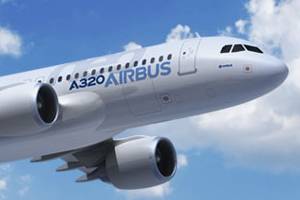Airbus, a leading aircraft manufacturer, has signalled ongoing difficulties in delivering aircraft on schedule. Recent forecasts reveal a shortfall in meeting delivery targets, exacerbating airline capacity issues and increasing fare prices.
These challenges, largely stemming from persistent supply chain disruptions, underscore significant hurdles in the aviation industry. With crucial delays from engine producers like Pratt & Whitney and CFM International, airlines are facing mounting operational strains.
The aviation giant, Airbus, has announced a projected deficit of 30 aircraft from its annual delivery target of 800 units. This shortfall is a direct consequence of delays caused by suppliers, especially affecting the production of the A320neo model.
Despite ambitions to ramp up production to 75 Airbus A320neos a month, the timeline has been pushed to 2027, a year later than previously anticipated. The implications for airlines, particularly in the European short-haul market where the A320 reigns supreme, are profound.
Projected Delivery Shortfall
A key factor in the delivery delays is the ongoing supply chain complications, notably in the engine manufacturing sector. Companies such as Pratt & Whitney and CFM International are at the heart of these issues.
Airbus CEO Guillaume Faury highlighted the persistent, specific supply chain issues, mainly in engines, aerostructures and cabin equipment. He described the shortage of engines as a ‘significant issue’ that was unexpected.
The delays have not only disrupted new aircraft deliveries but have also compelled airlines to refurbish older fleets, leading to further operational challenges.
Supply Chain Complications
Airbus has faced unexpected setbacks that are impacting its profitability. The company has revised its profit forecast downward, from €7 billion to €5.5 billion, following substantial financial hits.
The first half of the year saw a €900 million charge in its space division, further straining financial outcomes. Airbus’s adjusted forecasts have assumed no additional shocks in their supply logistics.
This downward revision in profit forecasts has taken aviation analysts by surprise, labelling the situation a ‘shock’ and indicating significant industry challenges ahead.
Financial Implications
Engine problems with the Pratt & Whitney GTF on the A320 neo are leading to extended groundings of aircraft already in service.
Airlines like Wizz Air have been severely affected, with up to 50 aircraft grounded, and projections suggest up to 650 A320s could be immobilised.
The grounding impacts extend beyond Wizz Air, with far-reaching implications for scheduling and network planning across affected carriers.
Engine Grounding Issues
Industry insiders have indicated that these supply chain constraints could persist for the next two to three years, affecting fare prices.
Ryanair’s CEO Michael O’Leary has further forecasted fare increases due to ongoing capacity constraints.
The constraints have also resulted in elevated leasing rates as airlines turn to older aircraft, leading to higher fuel consumption and maintenance costs.
Future Industry Outlook
Amidst these hurdles, Airbus is seeking strategic partnerships to mitigate challenges. The potential acquisition of Spirit AeroSystems’ facilities in the US, France, and Belfast is being discussed.
This acquisition could streamline Airbus’s component supply chain and fortify its production capabilities for models like the A220 and A350.
Strategic Partnerships and Acquisitions
The aviation industry is navigating tumultuous times with multifaceted challenges impacting operations and financial performance.
Industry Sentiments and Summary
The aircraft delivery delays at Airbus highlight a broader industry struggle with persistent supply chain issues and financial pressures.
With significant implications for airline capacity and fare prices, stakeholders must navigate these challenges through strategic planning and robust partnerships.

